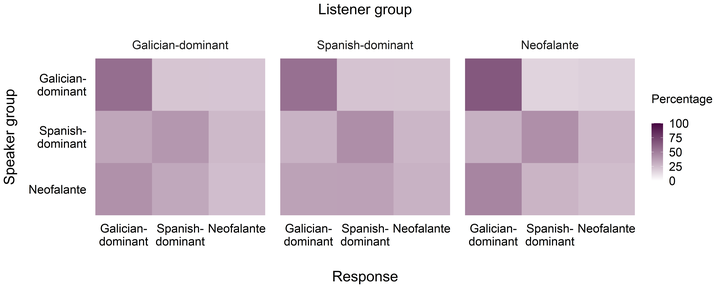Sociolinguistic Awareness in Galician Bilinguals: Evidence from an Accent Identification Task

Abstract
The inclusion of European minority languages in public spaces such as education, administration and the media has led to the emergence of a new profile of speakers, “new speakers”, who typically acquire a minority language through education, but vary in terms of their language experience and use. The present study investigated whether a distinctive variety spoken by Galician new speakers (neofalantes) has emerged in the community and whether listeners’ language background influences accent identification abilities and patterns. Galician-Spanish bilingual listeners completed an accent identification task and were asked to comment on factors influencing their decision. Results demonstrated that all listeners could identify Galician-dominant better than Spanish-dominant bilinguals but could not identify neofalantes. Neofalantes were categorised as both Spanish- and Galician-dominant, supporting the idea that neofalantes have a hybrid variety. This finding suggests that listeners have a gradient representation of language background variation, with Galician-like and Spanish-like accents functioning as anchors and the neofalantes’ accent situated somewhere in the middle. Identification accuracy was similar for all listeners but neofalantes showed heightened sensitivity to the Galician-dominant variety, suggesting that evaluation of sociophonetic features depends on the listener’s language and social background. These findings contribute to our understanding of sociolinguistic awareness in bilingual contexts.